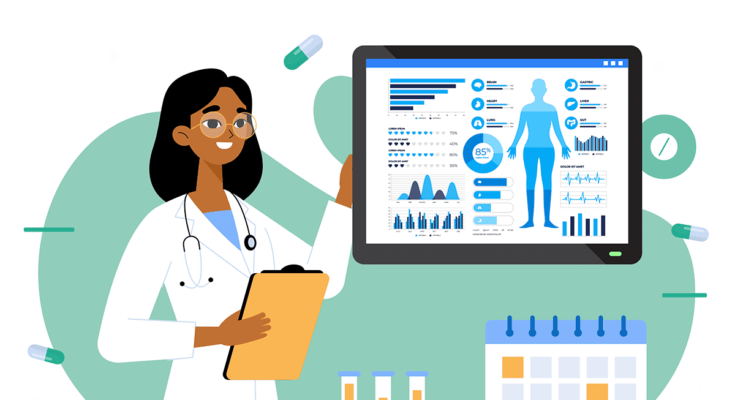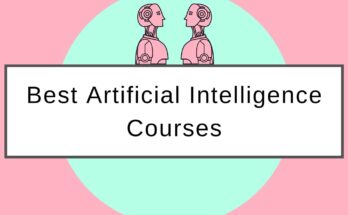In an era defined by technological advancement, data has become the cornerstone of modern healthcare. The ability to harness the vast amounts of healthcare data has given rise to a new field – Health Data Science. This innovative discipline combines medical expertise with data analysis skills to extract valuable insights from patient records, research studies, and other healthcare sources. Doctors, at the forefront of patient care, are increasingly recognizing the importance of data science in improving clinical outcomes, disease prevention, and healthcare management. In this article, we will explore the relevance of data science courses for doctors, the benefits they offer, and answer frequently asked questions about this exciting field.
The Relevance of Data Science for Doctors
Data science, often described as the process of extracting knowledge and insights from data, has the potential to revolutionize the way doctors approach healthcare. Here’s why data science is becoming increasingly relevant for doctors:
- Data-Driven Decision-Making: In healthcare, decisions often have life-changing consequences. Data science equips doctors with the tools to make evidence-based decisions, improving patient outcomes and safety.
- Disease Prediction and Prevention: Data science allows doctors to identify high-risk patients and implement preventive measures, thereby reducing the burden of chronic diseases and hospital admissions.
- Personalized Medicine: By analyzing a patient’s genetic, clinical, and lifestyle data, doctors can tailor treatments to individual needs, optimizing effectiveness and minimizing side effects.
- Efficient Resource Allocation: Healthcare facilities can use data science to optimize resource allocation, making healthcare more accessible and cost-effective.
- Research Advancements: Doctors engaging in data science can contribute to medical research by analyzing large datasets, identifying trends, and generating hypotheses for future studies.
Benefits of Pursuing Data Science Courses for Doctors
Now, let’s delve into the specific benefits that doctors can gain by pursuing data science courses:
- Enhanced Clinical Decision-Making: Data science equips doctors with the skills to analyze patient data, identify patterns, and make more informed decisions. This can lead to better diagnosis and treatment strategies.
- Improved Patient Care: The ability to use data to predict patient outcomes and individualize treatment plans can significantly enhance the quality of care, leading to improved patient satisfaction.
- Career Advancement: Data science skills are in high demand in the healthcare industry. By acquiring these skills, doctors open up new career opportunities, including roles in healthcare administration, research, and consulting.
- Contribution to Medical Research: Data-savvy doctors can actively participate in research projects, leading to advancements in medical science and a deeper understanding of various diseases.
- Cost-Efficiency: Data-driven healthcare management can reduce unnecessary tests, hospital admissions, and resource wastage, ultimately saving healthcare institutions and patients money.
- Interdisciplinary Collaboration: Data science courses often promote interdisciplinary collaboration, enabling doctors to work closely with data scientists, statisticians, and other experts, fostering a holistic approach to healthcare.
- Fulfilling Regulatory Requirements: In many healthcare systems, data privacy and security have become paramount. Data science courses for doctors often include training in these areas, ensuring compliance with regulations.
FAQs about Data Science Courses for Doctors
As doctors consider embarking on a journey into data science, they might have questions. Here are some frequently asked questions and their answers:
1. Can doctors with no prior data science background enroll in data science courses?
Yes, many data science courses are designed for individuals with varying levels of experience. There are beginner-level courses that provide a solid foundation for those new to data science.
2. How long do data science courses typically take to complete?
The duration of data science courses can vary. Short online courses may take a few weeks, while more comprehensive programs can last several months or even years, depending on the depth of study.
3. Are there any specific prerequisites for enrolling in data science courses for doctors?
Prerequisites vary from course to course. While some programs may require a background in mathematics or programming, others are designed for beginners. It’s essential to review the prerequisites of the specific course you’re interested in.
4. What are the core skills that doctors can expect to learn in data science courses?
Data science courses for doctors typically cover statistics, data analysis, machine learning, data visualization, and programming. These skills are crucial for analyzing healthcare data effectively.
5. Can doctors continue their medical practice while pursuing data science courses?
Many data science courses are flexible and can be taken online or part-time, allowing doctors to balance their studies with their medical practice. However, the workload may vary depending on the course.
6. What are the career opportunities for doctors who complete data science courses?
Doctors who complete data science courses can explore various career opportunities, such as clinical data analysts, healthcare data consultants, health informatics specialists, or researchers.
7. Are there specific data science tools and software that doctors should be familiar with?
Data science courses typically cover a range of tools and software, including Python, R, SQL, and data visualization libraries like Matplotlib and Seaborn.
8. How can data science skills benefit clinical practice?
Data science skills can help doctors make more informed clinical decisions, personalize treatments, predict patient outcomes, and identify trends in population health, ultimately improving patient care.
9. Are there any ethical considerations in healthcare data science that doctors should be aware of?
Yes, ethics is a critical aspect of healthcare data science. Doctors should be aware of patient data privacy, data security, and the responsible use of data to avoid potential ethical and legal issues.
10. Are there any professional organizations or certifications related to data science for doctors?
There are various organizations and certifications related to data science in healthcare, such as the American Medical Informatics Association (AMIA) and the Certified Health Data Analyst (CHDA) certification.
Also Read: Accredited Online Data Science Courses
Conclusion
Data science has emerged as a pivotal field in modern healthcare, and doctors are well-positioned to leverage its power. Pursuing data science courses can equip doctors with the skills necessary to harness the potential of healthcare data, ultimately leading to better clinical decisions, improved patient care, and the advancement of medical research. As the healthcare industry continues to evolve, data science skills are becoming increasingly valuable for doctors, offering not only personal and professional growth but also the opportunity to positively impact the well-being of patients and the broader healthcare community. With the right courses and dedication, doctors can embark on a transformative journey in data science, shaping the future of healthcare.




